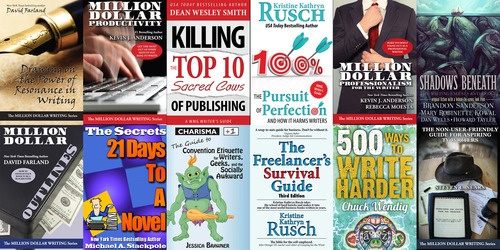(Listen to this tip on Youtube.)
For the last month and a half, I've been rearranging and revamping a whole sequence of scenes in my novel. Moving stuff up, pushing stuff back, deleting this, adding this, and while I wasn't surprised at the time and work it took to complete this revamp, I was reminded about how a great novel should all interlock. So, by changing and moving things, I have to change and revamp other parts. Not just on a plot level, but on a character arc level, on a thematic level, on an everything level.
 But what did surprise me was how I had to rewrite the emotional level of my characters. In that alone, in a way, I felt like I had to rewrite each scene. Because I had changed and rearranged plot elements, my characters were in different moods for different scenes. They had different emotional arcs in my scenes than what they had before. So for each scene, I had to get deep into my character all over again to convey his or her emotional status for the scene. And of course, in a lot of scenes, a character's emotional status changes throughout it. On top of that, I've been trying to do deep and thorough character edits anyway, making even their body language distinct from other characters.
But what did surprise me was how I had to rewrite the emotional level of my characters. In that alone, in a way, I felt like I had to rewrite each scene. Because I had changed and rearranged plot elements, my characters were in different moods for different scenes. They had different emotional arcs in my scenes than what they had before. So for each scene, I had to get deep into my character all over again to convey his or her emotional status for the scene. And of course, in a lot of scenes, a character's emotional status changes throughout it. On top of that, I've been trying to do deep and thorough character edits anyway, making even their body language distinct from other characters.Like real people, characters should react to, cope with, and manifest their emotions in individual ways. If your character hears that someone ran over her dog, what is her emotional reaction? Is she mad? Sad? Shocked? Devastated? Happy? Annoyed? Why? How she reacts emotionally reveals character. To take it to the next level, you ask, how is she mad? Sad? Happy? Etc. Does she try to hold it in? Does she keep her angry thoughts to herself and say something completely different outloud? Does she scream every profanity she can think of? Is it a cold anger that leads her into calmly seeking revenge on the driver?

























